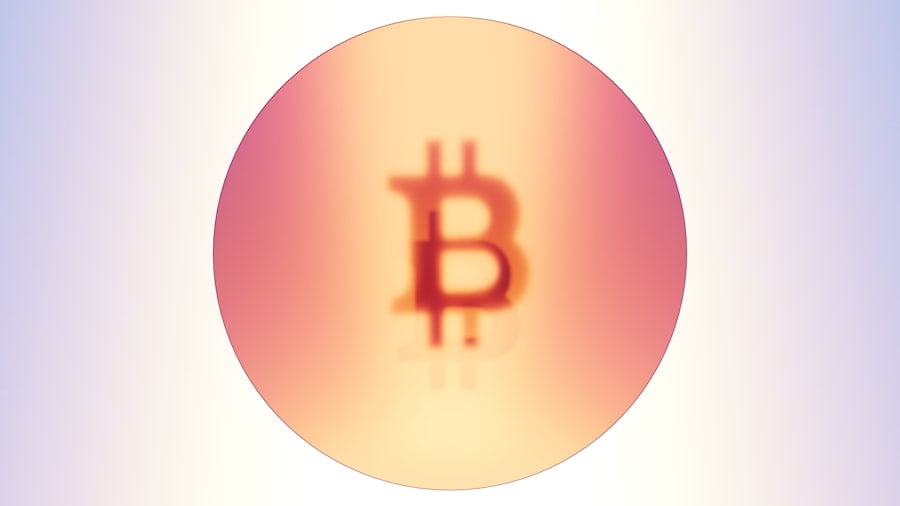The concept of the Metaverse has evolved from a niche idea in science fiction to a burgeoning reality that captivates technologists, investors, and everyday users alike. At its core, the Metaverse represents a collective virtual space where users can interact with a computer-generated environment and other users in real-time. This immersive digital universe encompasses augmented reality (AR), virtual reality (VR), and the internet, creating a seamless blend of physical and digital experiences.
The Metaverse is not merely a single platform; rather, it is an interconnected ecosystem of various virtual worlds, social networks, and digital economies, all designed to enhance human interaction and creativity. As technology advances, the Metaverse is becoming increasingly accessible. With the proliferation of high-speed internet, affordable VR headsets, and sophisticated software tools, users can now engage in this expansive digital landscape from the comfort of their homes.
The rise of social platforms like Roblox, Fortnite, and Decentraland has further popularized the idea of virtual spaces where users can create, share, and monetize their experiences. This shift towards a more immersive online experience has profound implications for how we socialize, work, and even conduct business in the digital age.
Key Takeaways
- The Metaverse is a virtual reality space where users can interact with a computer-generated environment and other users.
- Virtual real estate is on the rise, with digital properties being bought and sold for real money within the Metaverse.
- Investors are increasingly looking to virtual properties as a new asset class, with the potential for high returns.
- Virtual real estate development involves creating and designing digital properties within the Metaverse.
- Challenges in the virtual real estate market include security concerns and the need for regulation, but there are also opportunities for innovation and growth.
The Rise of Virtual Real Estate
The Rise of Virtual Real Estate
Virtual real estate has become a significant component of the Metaverse, capturing the attention of investors and entrepreneurs alike. As users flock to these digital environments, the demand for virtual land and properties has skyrocketed. Virtual real estate refers to parcels of land or spaces within these digital worlds that can be bought, sold, or developed, much like physical real estate.
Marketplaces and Transactions
Platforms such as Decentraland and The Sandbox have created marketplaces where users can purchase virtual land using cryptocurrencies, often at staggering prices that rival those of physical properties in prime locations. The allure of virtual real estate lies in its potential for creativity and innovation.
Unlimited Possibilities in Virtual Real Estate
Unlike traditional real estate, where development is often constrained by zoning laws and physical limitations, virtual properties can be designed and modified without such restrictions. This freedom allows for unique architectural designs and interactive experiences that can attract visitors and generate revenue. For instance, virtual art galleries, concert venues, and gaming arenas are just a few examples of how developers are leveraging virtual land to create engaging experiences that draw users in.
Investing in Virtual Properties

Investing in virtual properties has become a lucrative venture for many individuals and companies looking to capitalize on the growing interest in the Metaverse. Just as with traditional real estate, the value of virtual land is influenced by location, demand, and potential for development. Investors are increasingly treating virtual properties as assets that can appreciate over time, leading to a new wave of speculation in the digital realm.
Some investors have reported significant returns on their investments, with certain parcels of virtual land selling for millions of dollars. The process of investing in virtual real estate typically involves purchasing land through blockchain-based platforms that facilitate transactions using cryptocurrencies. These transactions are recorded on decentralized ledgers, ensuring transparency and security.
Investors often conduct thorough research to identify promising locations within various virtual worlds, considering factors such as user traffic, existing developments, and future growth potential. Additionally, many investors are diversifying their portfolios by acquiring multiple properties across different platforms to mitigate risks associated with market fluctuations.
Virtual Real Estate Development
The development of virtual real estate presents unique opportunities for creativity and innovation that are not typically found in traditional real estate markets. Developers can create immersive experiences that engage users in ways that physical spaces cannot. For example, a developer might design a virtual theme park that incorporates interactive rides and games or an art gallery that showcases digital art in a 3D environment.
These developments not only attract visitors but also create opportunities for monetization through ticket sales, advertising, or sponsorships. Moreover, the collaborative nature of the Metaverse allows developers to work together on large-scale projects that can enhance the overall experience for users. For instance, multiple developers might collaborate to create a sprawling virtual city that features diverse attractions ranging from shopping districts to entertainment venues.
This collaborative approach fosters a sense of community among developers and users alike, as they contribute to building a vibrant digital ecosystem that continually evolves.
Challenges and Opportunities in the Virtual Real Estate Market
While the virtual real estate market is rife with opportunities, it is not without its challenges. One significant concern is the volatility associated with cryptocurrency markets, which can impact the value of virtual properties. As prices fluctuate dramatically based on market sentiment and speculation, investors must navigate this uncertainty carefully.
Additionally, the lack of established regulations governing virtual real estate transactions can lead to potential scams or fraudulent activities that undermine trust within the market. Despite these challenges, there are numerous opportunities for growth within the virtual real estate sector. As more users engage with the Metaverse for socializing, entertainment, and commerce, the demand for well-developed virtual spaces will continue to rise.
Furthermore, advancements in technology—such as improved VR hardware and software—will enhance user experiences and attract even more participants to these digital environments. Developers who can create compelling experiences that resonate with users will likely find success in this evolving landscape.
Regulation and Governance in the Metaverse

As the Metaverse continues to grow, questions surrounding regulation and governance become increasingly pertinent. Unlike traditional real estate markets governed by local laws and regulations, the decentralized nature of the Metaverse presents unique challenges for oversight. Issues such as property rights, intellectual property protection, and taxation require careful consideration as more individuals engage in buying and selling virtual properties.
Some platforms have begun implementing their own governance structures to address these concerns. For instance, Decentraland operates under a decentralized autonomous organization (DAO) model that allows landowners to vote on key decisions affecting the platform’s development and policies. This approach empowers users to have a say in how their virtual environment evolves while also fostering a sense of community ownership.
However, as the Metaverse expands beyond individual platforms into a more interconnected ecosystem, establishing universal standards for regulation will be crucial to ensure fairness and security for all participants.
The Future of Virtual Real Estate Markets
The future of virtual real estate markets appears promising as technological advancements continue to reshape how we interact with digital environments. With increasing interest from major corporations and brands looking to establish a presence in the Metaverse, we can expect significant investment in virtual properties and developments. Companies are recognizing the potential for brand engagement through immersive experiences that resonate with consumers on a deeper level.
Moreover, as more people adopt VR and AR technologies for everyday use—whether for work meetings or social gatherings—the demand for well-designed virtual spaces will only grow. This trend could lead to an expansion of services related to virtual real estate development, including architecture firms specializing in digital design or marketing agencies focused on promoting virtual properties. As these markets mature, we may also see the emergence of new financial instruments tailored specifically for virtual real estate investments.
Implications for Traditional Real Estate Industry
The rise of virtual real estate is poised to have significant implications for the traditional real estate industry. As more individuals invest time and resources into digital properties, there may be a shift in how people perceive value in both physical and virtual spaces. The ability to create unique experiences within the Metaverse could lead some consumers to prioritize access to engaging digital environments over traditional physical locations.
Furthermore, traditional real estate developers may need to adapt their strategies to incorporate elements of the Metaverse into their projects. This could involve creating hybrid spaces that blend physical and digital experiences or leveraging technology to enhance property marketing through virtual tours or augmented reality features. As the lines between physical and digital continue to blur, understanding consumer preferences across both realms will be essential for success in an increasingly interconnected world.
In conclusion, while the Metaverse presents exciting opportunities for innovation and investment in virtual real estate, it also poses challenges that require careful navigation. As this digital landscape continues to evolve, stakeholders across various sectors must remain vigilant in addressing regulatory concerns while embracing the potential for growth within this dynamic market.
In a recent article discussing how virtual real estate markets are emerging in the metaverse, it is fascinating to consider the technological advancements that are shaping our future. As we delve deeper into the realm of virtual reality, it becomes increasingly important to have the right tools and equipment to fully immerse ourselves in this digital world. For those looking to enhance their virtual experience, the article on the best headphones for 2023 provides valuable insights into the latest audio technology. Additionally, for individuals working with complex data sets in the metaverse, the article on the best software for working with piles of numbers offers practical solutions for managing and analyzing data efficiently. And for those interested in creating physical objects in the virtual world, the article on the best software for 3D printing showcases cutting-edge tools for bringing digital designs to life. As we continue to explore the possibilities of the metaverse, having the right technology at our disposal will be crucial for unlocking its full potential.
FAQs
What is the Metaverse?
The Metaverse is a collective virtual shared space, created by the convergence of virtually enhanced physical reality and physically persistent virtual reality.
What is virtual real estate?
Virtual real estate refers to the ownership or control of virtual land, properties, or spaces within the Metaverse or other virtual environments.
How are virtual real estate markets emerging in the Metaverse?
Virtual real estate markets are emerging in the Metaverse as more people and businesses are investing in and developing virtual properties, leading to the buying, selling, and leasing of virtual land and spaces.
What are some examples of virtual real estate in the Metaverse?
Examples of virtual real estate in the Metaverse include virtual land, buildings, homes, commercial spaces, and entertainment venues within virtual worlds and platforms.
How are virtual real estate markets impacting the real world?
Virtual real estate markets are impacting the real world by creating new opportunities for investment, business development, and social interaction, as well as influencing the development of virtual and augmented reality technologies.

